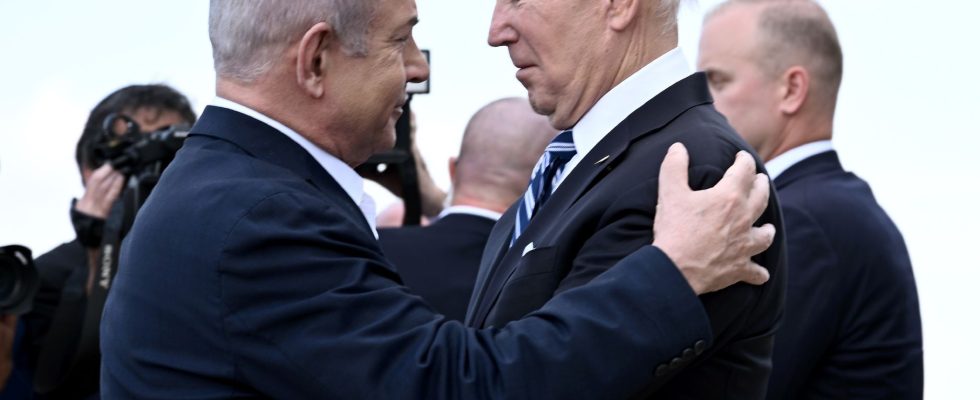The cover of The Economist, at the end of March, caused a stir in Jerusalem: “Israel alone”, in the ruins of Gaza. Since then, the isolation of this young country, which celebrates its 76th anniversary this month, has increased. While more than 35,000 people have been killed in the Palestinian enclave (according to Hamas), the International Criminal Court threatens to issue an arrest warrant against Benjamin Netanyahu, the United States has frozen a delivery of weapons to the first time and Western campuses are inflamed against Israel. His Prime Minister can increase his bravado, ensuring that his country can defend itself, international alliances are in reality a matter of survival for the Jewish State, located in the middle of a tumultuous Middle East. By refusing a ceasefire and bombing Rafah, Israel appears to be taking the worst possible path: that of a pariah state.
But these pressures primarily concern the Israeli government, in the hands of a handful of extremists, without ever calling into question Western support for the Jewish state. When the Biden administration pauses sending bombs to Israel, only the most destructive ones, killing families indiscriminately, are affected. And April 13 showed that, when Israel had to face hundreds of missiles coming from Iran, its allies mobilized instantly to come to its aid.
During Eurovision too, Israelis were able to see that they were not alone in the face of hatred. To the thousands of excited people laying siege to the hotel of a singer barely 20 years old, Eden Golan, millions of Europeans responded by picking up their phones and paying 99 cents to support her. Not necessarily out of musical taste, but out of rejection of such injustice. The young Israeli finished second in the viewers’ vote.
Urgently, another front must open: that of political debate, too often confiscated by ideologues who replace all reflection with easy slogans. The blind hatred of certain students would thus prevent the arrival of former diplomat Elie Barnavi at the Free University of Brussels (ULB), an Israeli intellectual opposed to colonization and tireless activist for Israeli-Palestinian dialogue. Fortunately, the rector of the ULB, Annemie Schaus, resists and maintains her invitation. The historian will be able to demonstrate his courage, his intelligence and his nuance. Indispensable elements to advance thinking, the only valid remedy for war.
